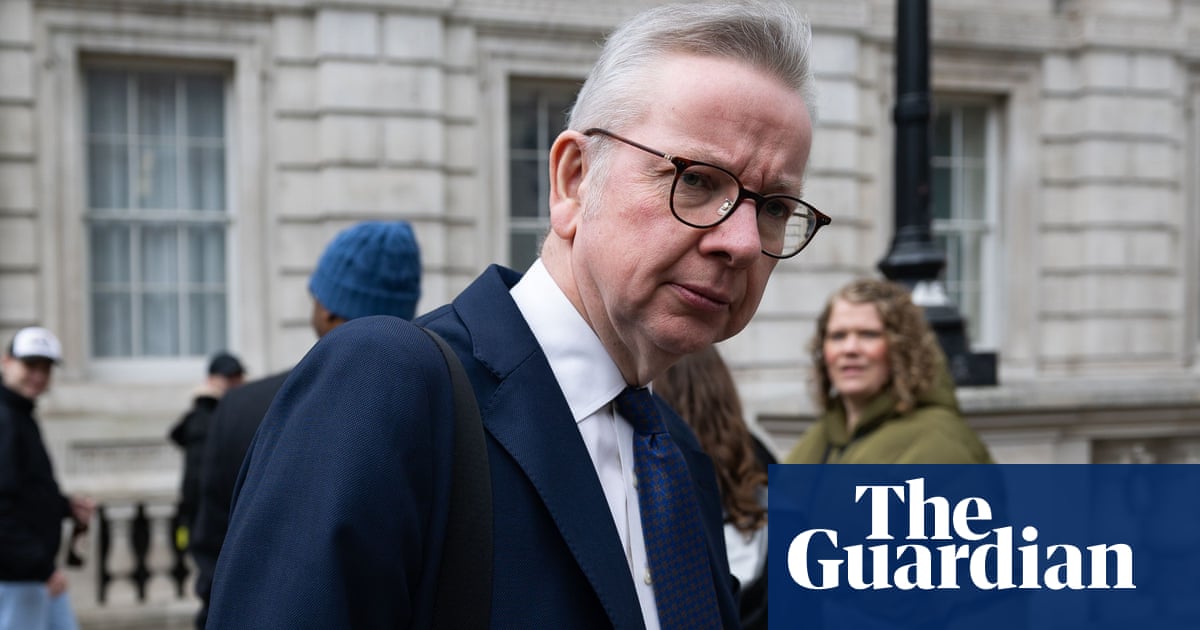
Michael Gove is exploring how to cut soaring insurance premiums for homeowners hit by the building safety crisis and ramp up pressure on developers to pay for repairs, in the first signs of a new government push to tackle the widening scandal.
Boris Johnson has tasked his new secretary of state for levelling up, housing and communities with resolving the post-Grenfell crisis that has left hundreds of thousands of leaseholders in affected flats facing bills for tens of thousands of pounds.
Gove is examining whether the government could underwrite home insurance for residents whose properties are deemed at risk until remediation work is carried out. A recent survey of 143 blocks by the Association of Residential Managing Agents found gross premiums had soared from £8m to £29m in a year.
More than four years after the Grenfell Tower fire, nearly 200 high-rise apartment blocks with similar aluminium composite cladding have not been fully fixed. When buildings with other types of combustible cladding and other fire safety faults are counted, campaigners estimated more than 1 million leaseholders could be affected.
It is understood Gove has also asked for advice from civil servants about why it has proved so difficult to seek legal redress against companies that will not fix potentially unsafe buildings.
One alternative under consideration is naming and shaming the firms responsible – or even hauling them into the department, as Gove did with water company bosses over leaks when he was environment secretary.
“If we can’t go after people legally, are there other ways to put pressure on them?” said a government source, adding: “This is a new secretary of state who is looking afresh at everything.”
Ministers took a similar approach to indemnifying insurers who cover homes at risk of flooding, through a scheme called Flood Re – though campaigners warn it took years to set up.
Some leaseholders have seen their insurance premiums increase tenfold as a result of concerns about the fire safety of their homes. But rising premiums only account for a fraction of costs they face. Giles Grover, the spokesperson for the End Our Cladding Scandal campaign, faces a £20,000 bill at the City Gate complex in central Manchester and his insurance premium has almost tripled from £300 a year to £1,100. He gave Gove’s initiative a cautious welcome.
“It’s the cost of the insurance and the interim fire safety measures that will make many bankrupt before remediation bills even land,” he said. “It is good he is looking at solutions that will protect us, but it is frustrating it has taken so long and the government has looked at this before but faced insurance industry opposition. We want a proper sit-down with him about what the issues are. We don’t expect immediate solutions, we just want him to listen to us.”
The government regularly publishes the names of companies that have reported they have unsafe aluminium composite material (ACM) cladding, but have not yet started remediation work. The latest list includes the hotel chain Travelodge and others under more opaque control. One, Adriatic Land 5 Ltd, which owns a building in Stevenage, is involved in a larger investment fund that delivers its income through ground rents. The Stevenage MP, Stephen McPartland, told parliament it was controlled by an entity in Guernsey.
Gove has met Conservative rebels who have attacked the government’s plans as inadequate – particularly for those in shorter blocks not covered by the £5bn building safety fund, which only covers combustible cladding. At least 30 Tory MPs including McPartland, Iain Duncan Smith and Peter Bottomley are expected to rebel against the building safety bill due to go through parliament this autumn, by proposing amendments to protect leaseholders from costs.
The shadow housing secretary, Lucy Powell, welcomed the idea of an insurance scheme but said naming and shaming companies had already been tried, and largely failed. “We’ve been talking about naming and shaming for four years: it’s done nothing. Unless you’ve got a big stick with that, it just doesn’t work.”
Labour has called for a building works agency that would identify what remediation is really necessary, commission the work using the £5bn repair fund, and then certify the outcome to give reassurance to mortgage lenders and insurers.
“It’s gone way beyond cladding,” Powell said. “You’ve got a crisis of confidence in the whole market in tall and multistorey blocks. You need a holistic approach.”
The government has said it will set up a financing scheme to provide loans for leaseholders in smaller blocks to pay for remediations, limiting repayments to a maximum of £50 a month. But details have not yet been published about how it will operate.
Meanwhile, leaseholders who live in shorter blocks with dangerous cladding are still facing huge costs and unsellable homes, as well as bearing costs for other fire safety measures. Many are unable to take action against developers who refuse to bear the costs, because of the prohibitive costs of legal action.
The cross-party housing select committee has called for the proposed loans scheme to be scrapped in favour of a fund, jointly paid for by the government and industry, that would meet the full costs without leaseholders being forced to contribute.
The government is also expected to withdraw the formal advice that has prompted lenders to demand an inspection form, called an EWS1, before granting mortgages on shorter buildings.
Ministers announced in July that the forms should not be required for blocks lower than 18 metres, but there have been widespread reports of lenders continuing to insist on them.
Before he lost his job in last month’s reshuffle, the former housing secretary Robert Jenrick said he would withdraw the “consolidated advice notice” on building safety that lenders have been interpreting to mean they need an EWS1, “within the coming weeks”.












